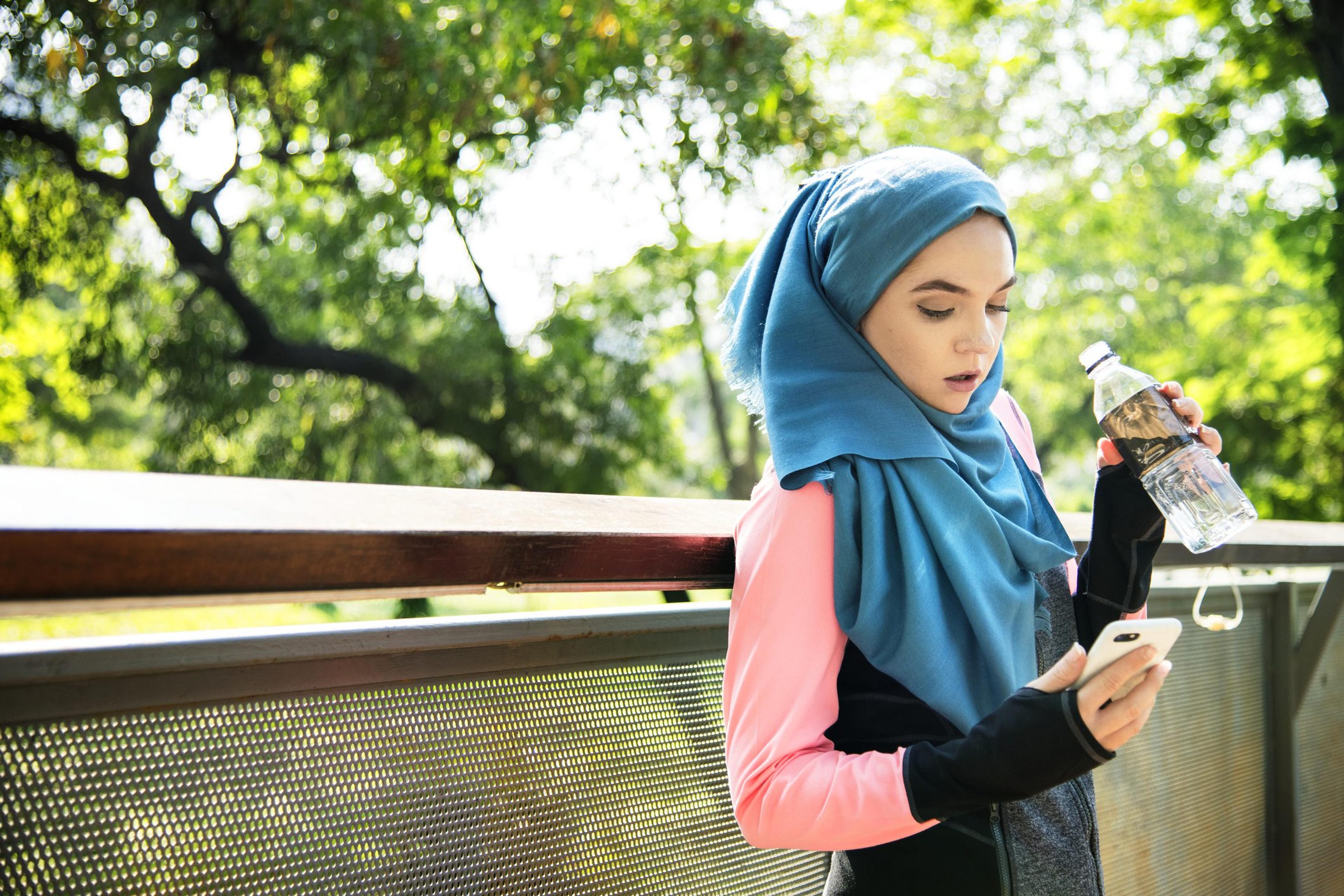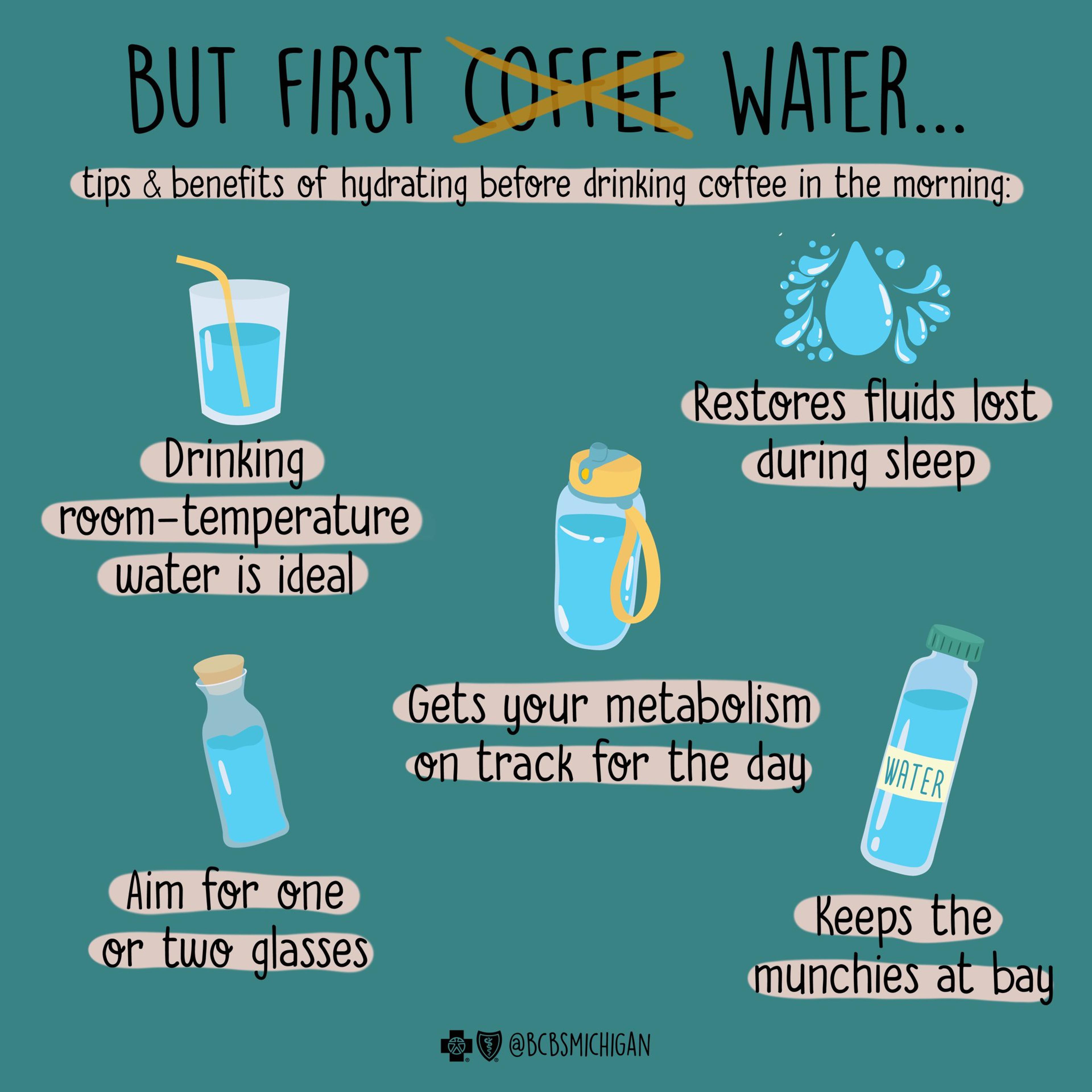How Much Water Do You Really Need to Stay Hydrated?
Amy Barczy
| 3 min read
Amy Barczy is a former brand journalist who authored content at Blue Cross Blue Shield of Michigan. Prior to her time at Blue Cross from 2019-2024, she was a statewide news reporter for MLive.com. She has a decade of storytelling experience in local news media markets including Lansing, Grand Rapids, Holland, Ann Arbor and Port Huron.

We’ve all heard it before: drink eight glasses of water every day to stay hydrated. But drinking eight, eight-ounce glasses of water in each day isn’t the only way your body gets hydrated. And eight glasses might not be enough – depending on your lifestyle and activities.
Throughout the average day, you will lose 10 or more cups of water in your daily activities by just breathing, sweating and going to the bathroom. While drinking water is the most direct way to hydrate, we can hydrate our bodies through the foods that we eat as well. Fruits and vegetables contain water, fiber and vital nutrients – which are beneficial to our bodies in more ways than one. And fruits contain electrolytes and natural sugars that may help your body’s cells absorb nutrients and water.
The National Academies of Science, Engineering and Medicine recommends the following:
- Men consume 3.7 liters (125 ounces) of water each day
- Women consume 2.7 liters (91 ounces) of water each day
As about 20% of your daily fluid intake comes from the food you eat – which means you don’t have to drink each one of those recommended ounces.
Foods with high water content
Here are some foods that are high in water:
- Bell peppers
- Broth and soup
- Cabbage
- Cantaloupe
- Cauliflower
- Celery
- Cottage cheese
- Cucumber
- Grapefruit
- Lettuce
- Oranges
- Peaches
- Plain yogurt
- Skim milk
- Strawberries
- Tomatoes
- Watermelon
- Zucchini
Coffee and tea can also be counted towards your daily fluid intake. While they do act as a diuretic – causing more trips to the bathroom – that doesn’t offset their ability to hydrate.

How to tell if you're well-hydrated
The amount of water your body needs may vary. If you are more active, live in a warmer climate, live at a higher altitude, have a faster metabolism or have a larger body type, have certain medical conditions or are pregnant and breastfeeding, you may need more water than usual. Also, if you’re sick – and especially if you’re experiencing bouts of vomiting or diarrhea – it’s important to increase how much water you’re consuming.
The best way to tell if you’re drinking enough water is to pay attention to your urine. If your urine is colorless or light yellow, your body is well-hydrated. But if your urine is darker-colored and has a strong odor, you may need more fluids.
Signs of dehydration
Here are some signs of mild to moderate dehydration:
- Thirst
- Dry mouth
- Dark, yellow urine
- Dry, cool skin
- Headache
- Muscle cramps
The following are signs of severe dehydration and should be treated as a medical emergency:
- No urine or very dark, yellow urine
- Very dry skin
- Feeling dizzy
- Rapid heartbeat and rapid breathing
- Sunken eyes
- Sleepiness, lack of energy
- Confusion or irritability
- Fainting
If you have questions about whether your diet is providing you with the correct amount of hydration for your life, talk to your health care provider.
More from MIBP:
- What is the DASH Diet?
- What is Body Dysmorphia and How Is It Tested?
- Back Health and Hybrid Working: Best Ways to Take Your Workplace with You
Photo credit: Getty Images





